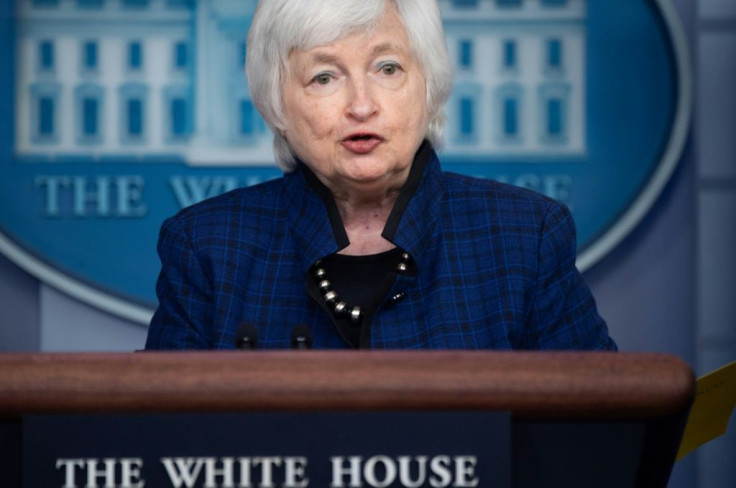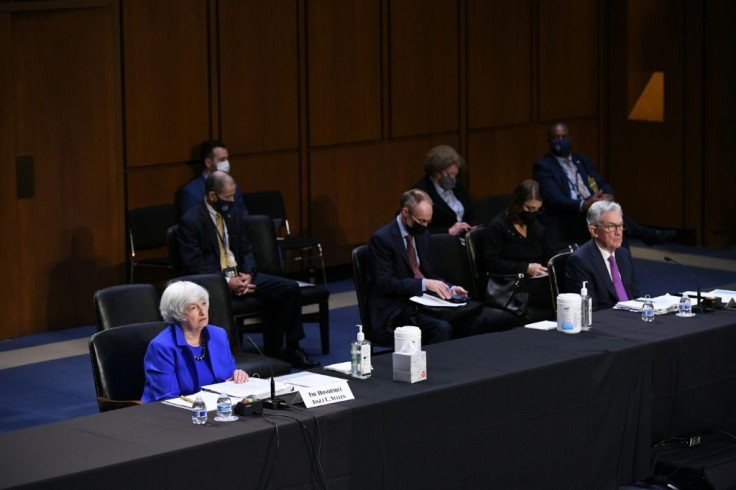US May Exhaust Funds By Oct 18 Unless Debt Limit Raised: Yellen
The US Treasury is likely to exhaust measures to keep funding the government on October 18, and will run out of cash unless Congress raises the federal borrowing cap, Treasury Secretary Janet Yellen warned Tuesday.
After the date, "Treasury would be left with very limited resources that would be depleted quickly. It is uncertain whether we could continue to meet all the nation's commitments after that date," she said in a letter to congressional leaders.
Republicans in the US Senate have stubbornly refused to support an increase or suspension of the debt ceiling, despite having pressed for it under their party's former president Donald Trump.
On Monday, they blocked a Democratic effort to approve a 14-month suspension together with a temporary budget.
Yellen repeated her call in her appearance before the Senate Banking Committee.

"It is imperative that Congress swiftly addresses the debt limit. If it does not, America would default for the first time in history," Yellen said in her prepared testimony.
The House passed a measure last week to keep the government open until December 3 while they continue debate on a major 10-year social spending package, but the evenly-divided Senate has thus far rejected beginning debate on the bill.
Without an increase, the government would be unable to pay salaries of public workers, send payments to retirees, or service the nation's debt.
Raising the debt limit does not increase spending, but simply allows Treasury to finance projects already approved by Congress, including trillions of dollars in aid rolled out during the Covid-19 pandemic.

Yellen said the spending helped support the US recovery, which "is stronger than those of other wealthy nations."
But failure to raise the debt ceiling -- which has been done 78 times since 1960, nearly always on a bipartisan basis -- could create "a catastrophic event for our economy."
"We must address this issue to honor commitments made by this -- and prior -- Congresses, including those made to address the health and economic impact of the pandemic," Yellen said in her testimony.
Federal Reserve Chair Jerome Powell, who also is testifying at the hearing, also has warned of dire consequences, as have a series of former Treasury secretaries and business groups.
And in her latest letter to lawmakers, Yellen again warned that prompt approval is critical since "waiting until the last minute can cause serious harm to business and consumer confidence, raise borrowing costs for taxpayers and negatively impact the credit rating of the United States for years to come."
"Failure to act promptly could also result in substantial disruptions to financial markets, as heightened uncertainty can exacerbate volatility and erode investor confidence," she said.
Raising the debt ceiling has been a contentious issue in Congress for the past several years, and a 2011 standoff caused S&P Global Ratings to downgrade US sovereign debt from its coveted AAA rating.
Senate Republican leader Mitch McConnell has used the debt limit as a political bludgeon to protest President Joe Biden's spending plans, and says Democrats must raise the ceiling without opposition support.
Under Trump, the ceiling was suspended for two years on a bipartisan basis after McConnell at the time argued that failing to do so "would be a disaster."
The cap was reinstated on August 1 with the country's debt at $28.4 trillion.
© Copyright AFP {{Year}}. All rights reserved.





















